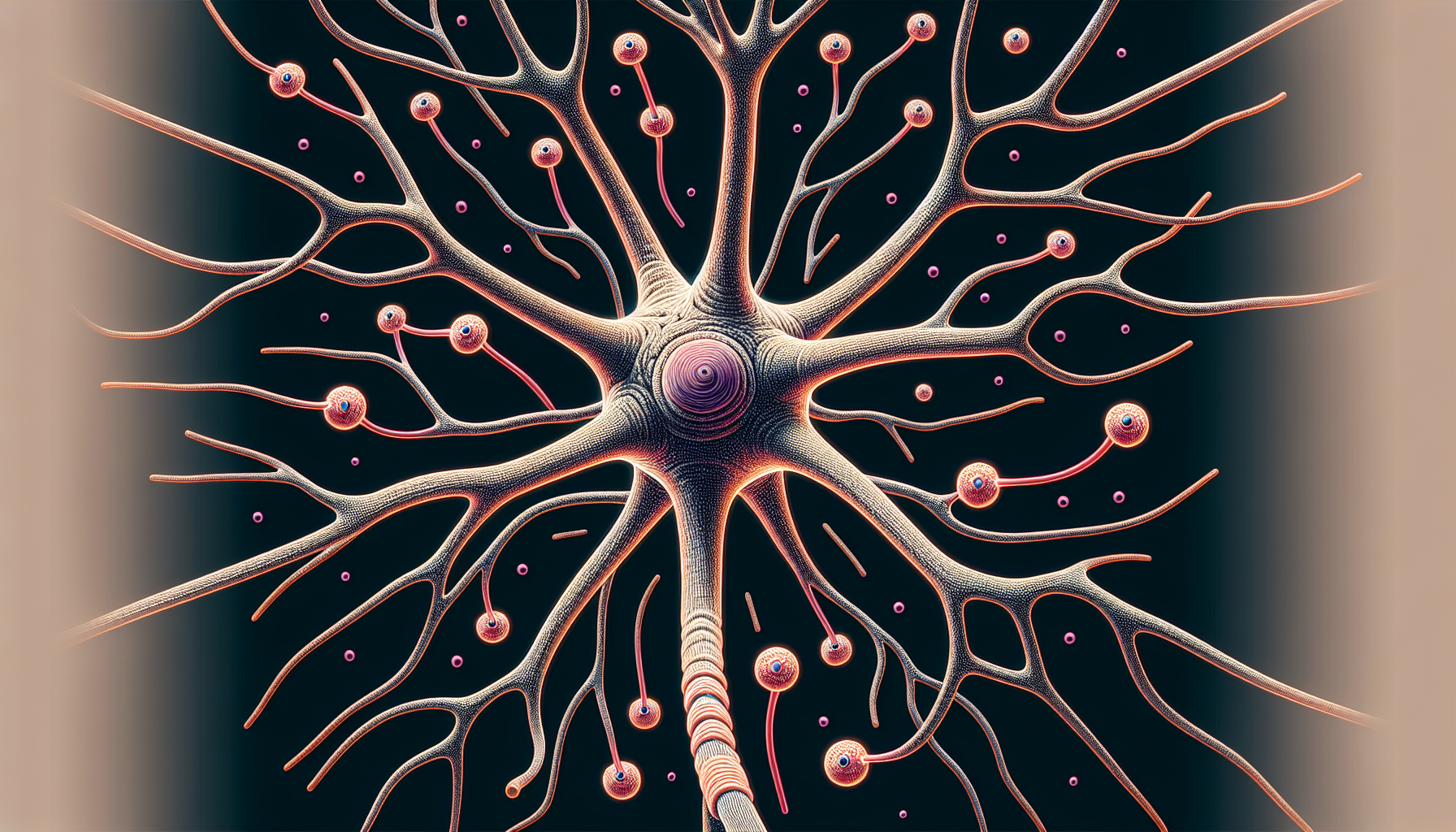Vitamin B12, a critical nutrient found in foods like meat, dairy, and fortified cereals, plays an essential role in the proper functioning of the nervous system. Its influence on neurological function is profound, affecting everything from nerve communication to brain health. This article delves into the multifaceted ways in which vitamin B12 impacts neurological health, the consequences of deficiency, and strategies to maintain optimal levels for cognitive and nervous system well-being.
The Role of Vitamin B12 in Neurological Health
Vitamin B12 is pivotal for the maintenance of myelin, the protective sheath that encases nerve fibers and facilitates the rapid transmission of electrical signals between neurons. Without sufficient B12, myelin integrity is compromised, leading to slowed neural communication and neurological impairment.
It also participates in the synthesis of neurotransmitters, chemicals that relay messages throughout the brain and body, influencing mood, learning, and memory. Additionally, vitamin B12 is involved in homocysteine metabolism, which, when dysregulated, can lead to an increased risk of neurodegenerative diseases and cognitive decline.
For a more comprehensive look into overall neurological health and its various aspects, consider reading about Brain Health.
The Consequences of Vitamin B12 Deficiency
A deficiency in vitamin B12 can manifest in various neurological symptoms. These may range from numbness and tingling in the hands and feet, indicative of nerve damage, to more severe conditions such as memory loss, difficulty in walking, and even mood disorders like depression. Over time, a lack of vitamin B12 can lead to irreversible neurological damage, underscoring the importance of early detection and intervention.
Strategies for Maintaining Adequate Vitamin B12 Levels
The best strategy to maintain adequate vitamin B12 levels is through a balanced diet rich in animal products like fish, poultry, eggs, and dairy. For vegetarians or those with malabsorption issues, fortified foods or supplements may be necessary. It’s crucial to work with a healthcare provider to monitor levels and address any deficiencies early on.
Linking Vitamin B12 to Cognitive Enhancement and Brain Health
The role of vitamin B12 extends into cognitive enhancement. Studies suggest that maintaining adequate levels of this nutrient is associated with better memory performance and may protect against brain atrophy as we age. Engaging in brain training games can complement a B12-rich diet to further enhance cognitive capacity.
Moreover, B12’s involvement in neurotransmitter synthesis and myelin formation suggests that it could play a role in the benefits derived from regular social engagement, as social activities often stimulate the areas of the brain responsible for communication and emotional regulation.
Exploring the Cognitive Effects of Vitamin B12 Deficiency
Deficiency in vitamin B12 has been linked to various cognitive issues. Research indicates that low levels of this vitamin may contribute to the development of dementia and other cognitive impairments. Improving B12 status has shown promise in mitigating cognitive decline, adding another layer of strategy to enhance mental clarity and focus alongside physical exercise.
Vitamin B12 and Brain Aging Prevention
The protective role of B12 against oxidative stress is yet another aspect of its neurological influence. Oxidative stress is a known contributor to the aging of the brain and neurological diseases. Antioxidant-rich foods aid in combating this stress, and the vitamin’s role in myelin and neurotransmitter synthesis furthers its brain-aging prevention capabilities.
External Resources Supporting Vitamin B12’s Role in Neurology
For those looking to dive deeper into the science of vitamin B12 and its neurological benefits, a wealth of niche resources exist:
- National Institutes of Health – Vitamin B12
- Harvard Health Publishing – The importance of vitamin B12
- Journal of Neuroscience – The role of B12 in neurological function
- Psychology Today – Vitamin B12 and the Brain
- National Center for Biotechnology Information – Neuropsychiatric disorders caused by cobalamin deficiency
These resources provide an in-depth look at the importance of vitamin B12 from a neurological perspective and offer research-backed information on the consequences of deficiencies and the benefits of maintaining adequate levels.
Conclusion
Vitamin B12 is not just a simple nutrient; it is a cornerstone of neurological health. It aids in preserving the myelin sheath, facilitates neurotransmitter function, and helps prevent cognitive decline. Ensuring adequate intake of this vital vitamin through diet or supplementation is key to maintaining a sharp, well-functioning brain as well as a healthy nervous system. As research continues to unearth the multifaceted roles of vitamin B12, its significance in neurological health becomes ever clearer, providing a strong incentive for its inclusion in our daily nutritional regimen.



